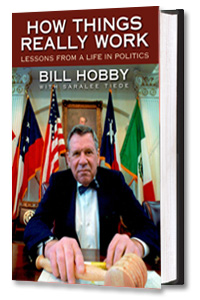Frustration with politics and government is everywhere. It is a deeper resentment and dissatisfaction than most of us have ever seen.
Why?
Because politics seems to ignore the things that concern us most. Some politicians seem more interested in fighting a sort of cultural civil war left over from the 1960s. What really concerns the country is our standard of living, the economic pressures on the middle class, the hopelessness of the poor.
Out of this despondency has come a book that expresses the black mood of the nation’s politics, yet inspires a vision of hope. E. J. Dionne, in his recent book “Why Americans Hate Politics”, captures this dissatisfaction more accurately than any other writer of the day.
Our schools are in trouble and our health care system is breaking down and millions of people are out of work. So why, Dionne asks, do liberals and conservatives keep talking about the same old things when the country wants to move on?
Fair enough. So let’s move on. Let’s quit bashing public servants and government the way Democrats and Republicans have lately been so fond of doing.
Let’s talk about the real problems of the nation. Let’s set an agenda for the 1990s that everybody ought to be able to agree on. Everybody, that is, except conservatives and liberals more interested in ideology than in helping people; except Democrats and Republicans more interested in partisan advantage than solving national problems.
That agenda has to include education, social security, health care, environment, and poverty. Let’s talk about education first, the others later.
Would it be too much to ask that we even begin to take education seriously? We certainly don’t now.
If we took education seriously, we would make it a full-time job. In the United States, students go to school about 180 days a year. In the industrial democracies with whom we compete, the school year is about 220 days a year. And the days are longer.
World events have given us an unprecedented chance to put thousands more superbly qualified teachers in the classroom in a matter of months, if only we are smart enough to do it.
We are in the midst of a major demobilization. In the next five to ten years, hundreds of thousands of men and women will be discharged from our armed services just when we need them desperately.
Many of them are already experienced instructors. Typically, they will have spent about one quarter of their military careers as either students or instructors. Here is a pool of able and disciplined citizens in whose training the nation has invested trillions of dollars over the last two decades.
Many of them will lack five years or so of service before they can qualify for military retirement. Why don’t we set up an Armed Forces Reserve Teacher Corps?
Qualified officers, senior non-commissioned officers, and specialists in critical fields would be given teacher training. They could then be discharged into the Teacher Corps and earn credit towards military retirement in their teaching years.
The idea of using military personnel for a national purpose not directly related to warfare is hardly new. In 1957 Congress, spurred by Sputnik, poured hundreds of millions of dollars into public education under the National Defense Education Act.
In the 1940s and ’50s, we built our first national highway system and called it a defense project. James Fallows, writing in the August Atlantic, points out that we have used the Defense Advanced Research Projects Agency to foster the development of essential technology. We have used the Office of Naval Research to pay for research at our universities.
Senator Sam Nunn of Georgia, Chairman of the Senate Armed Services Committee, has long proposed a national service corps in which young men and women would work for their country in a variety of social services. The Reserve Teachers’ Corps would complement Sen. Nunn’s idea beautifully.
This idea is too simple. Conservatives will be against it because they would rather spend money on prisons than schools. Liberals will be against it because it threatens teacher unions.
And all it would do would be to put a lot of highly qualified teachers in the classroom when they might otherwise have trouble finding jobs.
Let’s use our military establishment to improve secondary education in the country. Let’s use the most effective schools our nation has to solve our most pressing national problem: public education.

